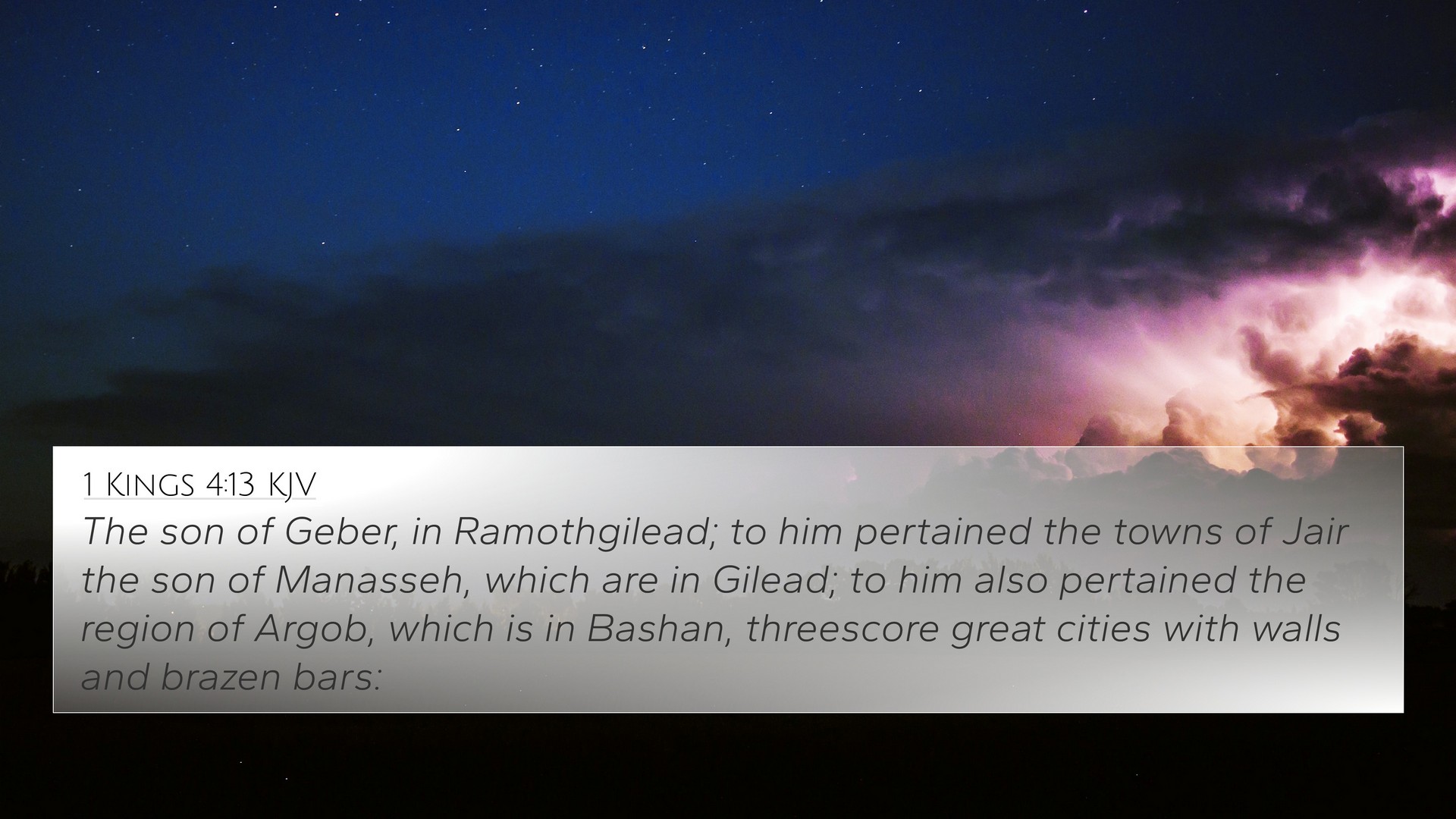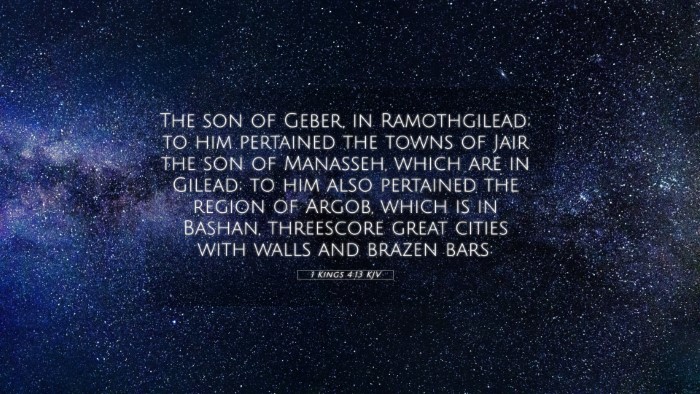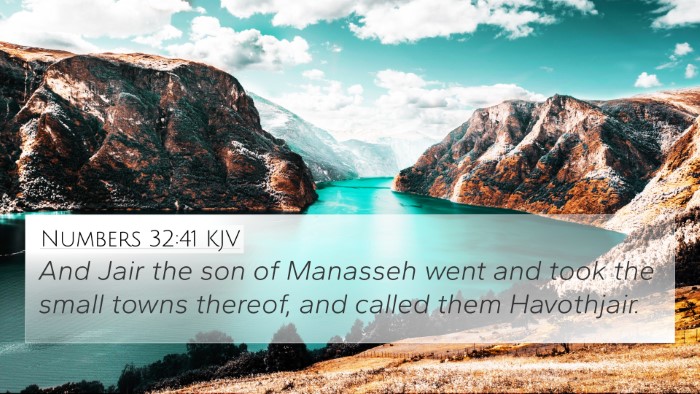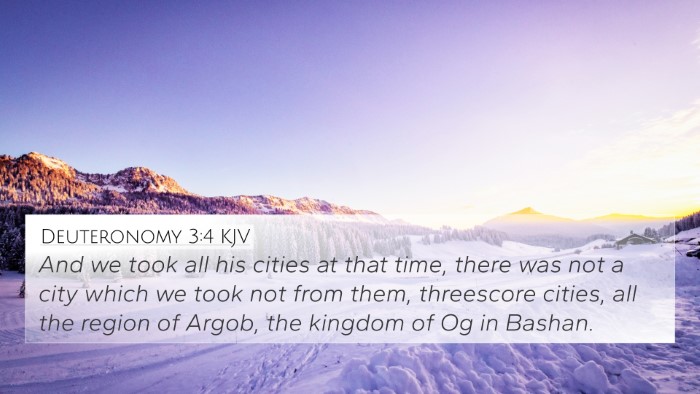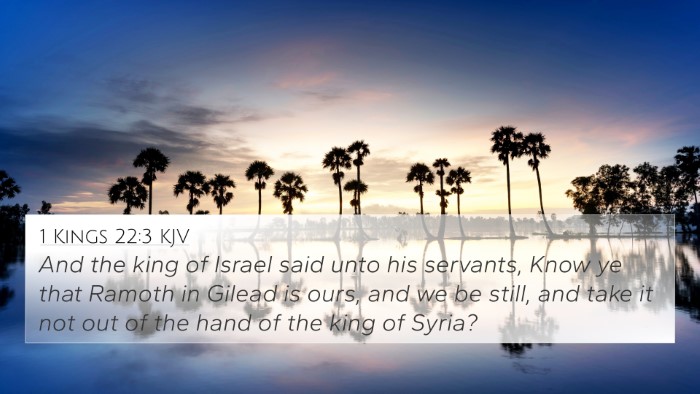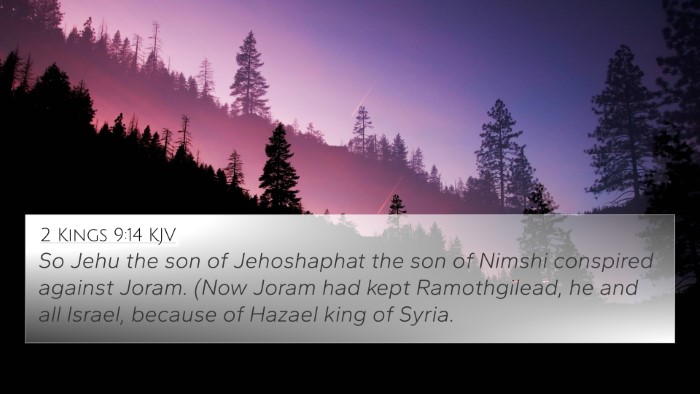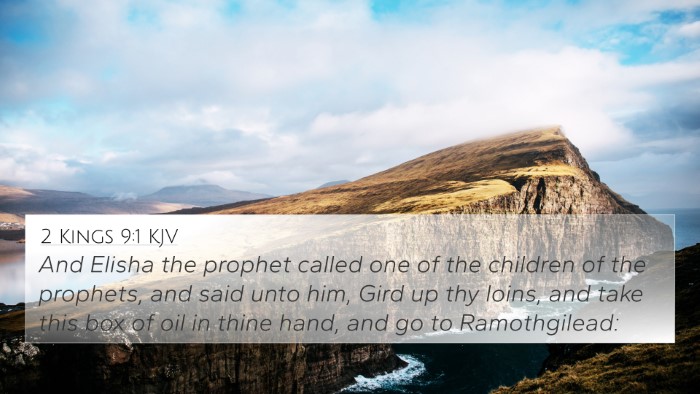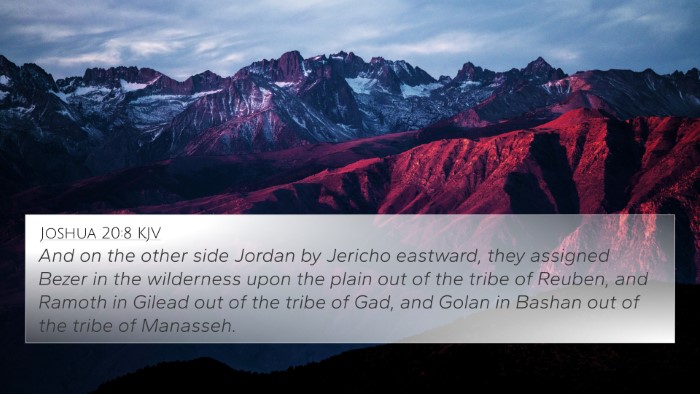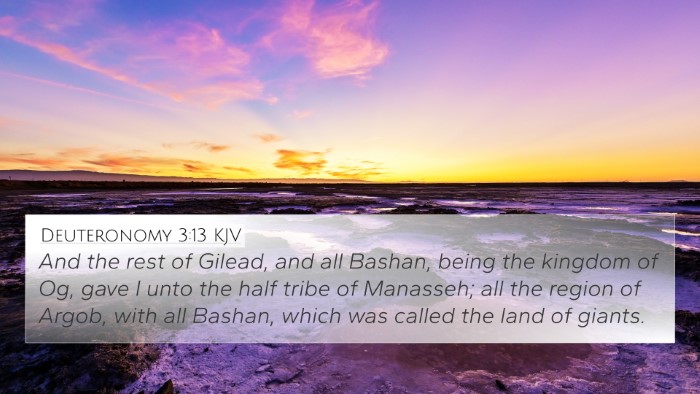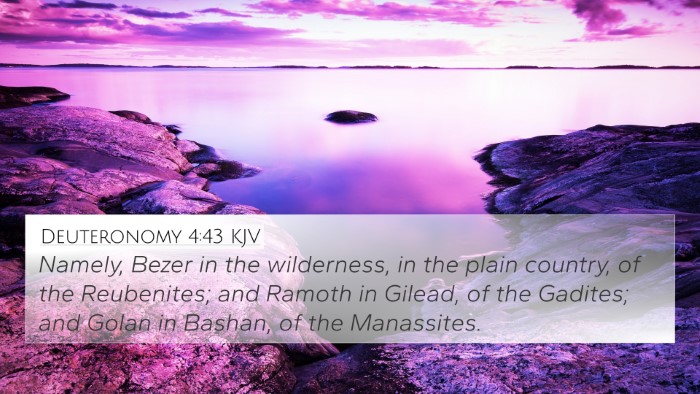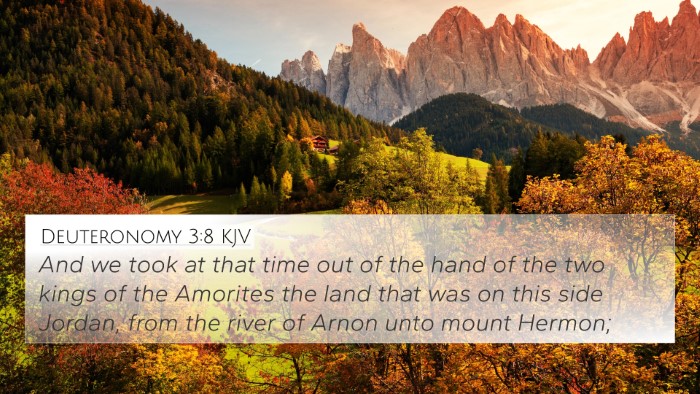Understanding 1 Kings 4:13
1 Kings 4:13: "The son of Geber, in Ramoth-gilead; to him pertained the towns of Jair, which are in Gilead; and the region of Argob, which was in Bashan, threescore great cities with walls and brazen bars."
Summary of Meaning
This verse introduces the administration of King Solomon, specifically highlighting one of his governors, Ben-Geber, responsible for Ramoth-gilead and its surrounding territories. It showcases the organizational prowess of Solomon’s reign and the wealth and prominence of the regions mentioned.
Commentary Insights
Matthew Henry: Henry emphasizes the effective governance under Solomon, pointing out that the mention of specific cities and their defenses showcases the king's ability to fortify his realm. Ben-Geber's appointment signifies a structured leadership that Solomon implemented to maintain order and security.
Albert Barnes: Barnes notes that the region of Argob was particularly noted for its fortified cities, reflecting the strategic importance Solomon placed on military readiness. This not only protected the kingdom but also stimulated trade and economic strength, portraying Solomon's wisdom in resource management.
Adam Clarke: Clarke gives attention to the historical context, noting the significance of the towns of Jair and their role in the area, which hints at the ancient familial ties and tribal heritage. The mention of "threescore great cities" underscores the vastness and richness of the territory under Solomon’s control.
Bible Verse Cross-References
- Deuteronomy 3:14: Discusses the territory of Jair and its allocation.
- 1 Chronicles 2:22: Mentions Jair as a descendant of Manasseh.
- Joshua 13:30: Refers to Bashan and its cities.
- 2 Samuel 20:14: Highlights the importance of fortifications in cities.
- 1 Kings 4:25: Illustrates the peace and security during Solomon's reign, connecting back to the fortified cities.
- 2 Chronicles 1:14: Discusses Solomon’s wealth and the governance of territories.
- Isaiah 2:4: Speaks on peace among nations, a thematic link to the security Solomon's administration was meant to promote.
Connections Between Bible Verses
1 Kings 4:13 illustrates the intricate governance of King Solomon. Understanding this verse requires looking at its connections with other scriptures. These cross-references present a thematic backdrop of leadership, military strategy, and territorial prominence.
Linking Bible Scriptures
The governance model illustrated in 1 Kings 4:13 can be linked with various accounts throughout the Old Testament, providing insight into how unity and strength were pursued through strategic territorial governance.
Comparative Bible Verse Analysis
By comparing 1 Kings 4:13 to other passages discussing kings and their territories, one can analyze the importance of leadership structures in ancient Israel, exploring how Solomon's approach differed or aligned with that of previous kings.
Tools for Bible Cross-Referencing
Utilizing a Bible concordance or a Bible cross-reference guide can vastly enhance one’s understanding of the connections within Biblical texts. These tools help identify and explore theses themes interspersed throughout the scriptures.
Identifying Connections Between Old and New Testament
While 1 Kings 4:13 primarily pertains to the Old Testament, themes of governance and wisdom resonate into New Testament teachings, especially in the context of leadership in the church, inviting a reflective dialogue between the testaments.
Bible Chain References
Establishing a chain of references from 1 Kings 4:13 to the broader narrative of biblical history can reinforce the significance of the verse in the grand context of divine leadership and territorial responsibilities.
Inter-Biblical Dialogue
The narrative in 1 Kings 4:13 invites further exploration into how similar themes of governance, territorial division, and military strategy appear throughout the history of Israel, establishing an inter-Biblical dialogue that continues through prophetic and New Testament writings.
Conclusion
This verse, although primarily historical, opens avenues for deep theological reflection on leadership, wisdom, and the role of God’s sovereignty in guiding the earthly rulers, which is a consistent theme throughout both the Old and New Testaments.
